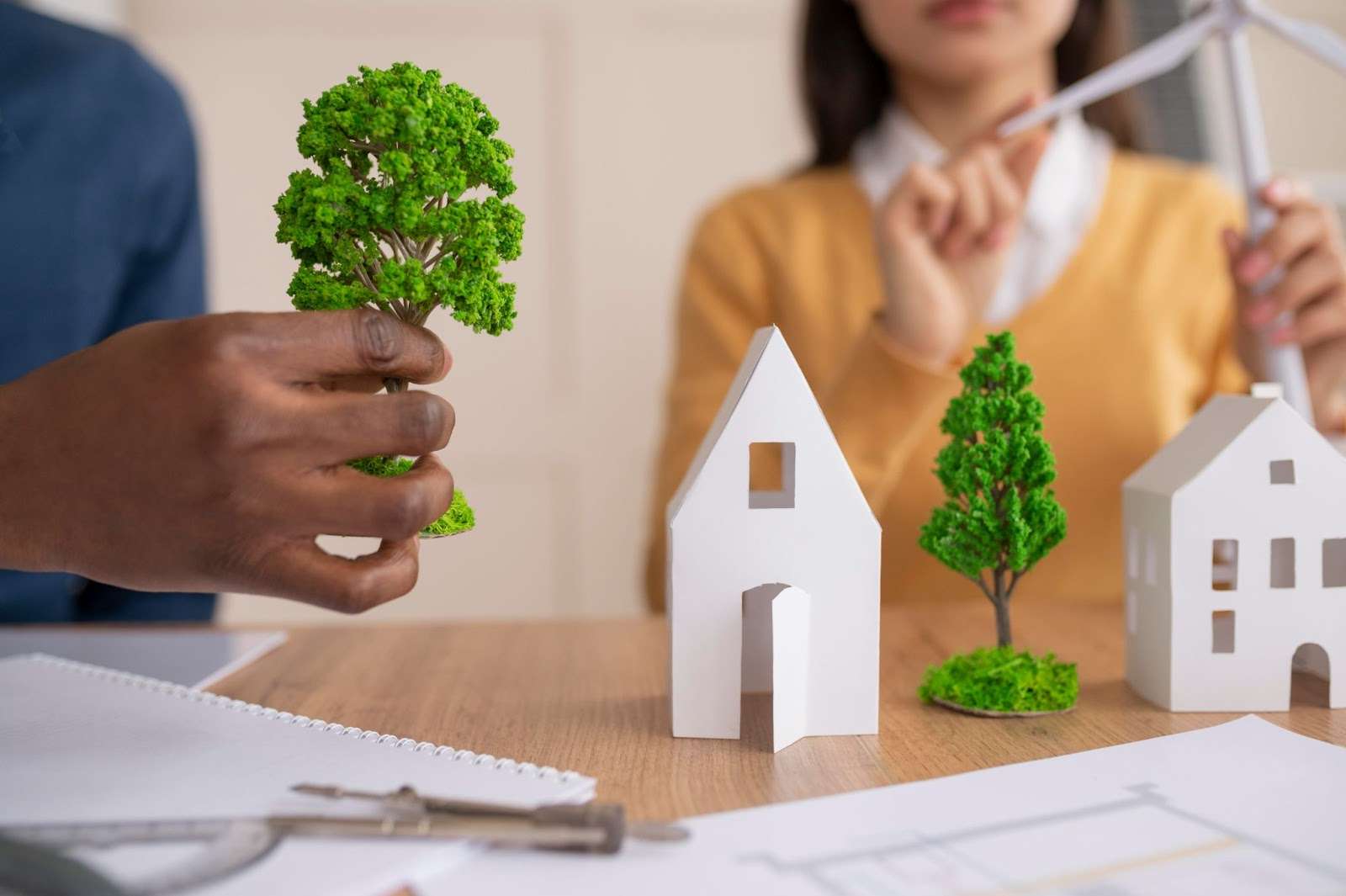In this day and age, it’s essential to consider the environmental impact of our choices. Houston is steadily becoming a hub for sustainable living, making it a viable option for creating the eco-friendly home of your dreams.
What is a sustainable home?
There are plenty of properties out there being marketed as sustainable homes, but what exactly makes something sustainable? In essence, sustainability is all about minimizing the environmental impact of your build throughout its lifespan, from construction to daily living. A sustainable home is designed and built with the environment in mind, focusing on reducing energy consumption, minimizing waste, and utilizing eco-friendly materials. From the initial planning stages to the final construction, every aspect of the home is carefully considered not only to provide benefits to the homeowner but to be kinder to the environment.
HOW TO BUILD A SUSTAINABLE HOME
If you would prefer to make more of a difference and live a more eco-friendly lifestyle, building custom-made instead of buying an already-built home is a good option. You’ll have greater control over the aspects of your property that can impact the environment. Here are a few of our best tips:
- Plan your goals. Get a clear idea of your sustainability priorities. Determine what aspects of sustainability are most important to you, such as energy efficiency, water conservation, or using non-toxic materials. By setting clear goals from the beginning, you can ensure that your home is designed and built to meet your sustainability objectives more effectively.
- Hire the right custom home builder. Partnering with a builder experienced in sustainable construction. If possible, look for builders who have experience in creating properties that are recognized by organizations like LEED or the National Green Building Standard (NGBS). A good builder should know the latest technologies and materials to optimize your home’s environmental performance. Ideally, they should also have some experience in their use.
- Choose eco-friendly materials. Opt for materials that have minimal environmental impact, such as reclaimed wood, recycled glass, and low-VOC paints. These materials not only reduce waste but also contribute to a healthier indoor environment for you and your family.
- Invest in energy-efficient systems. Energy-efficient appliances, HVAC systems, and insulation will go a long way in helping reduce your home’s energy consumption. Utilizing renewable energy sources like solar panels will not only minimize your carbon footprint but also lower your utility bills.
- Invest in water conservation systems. Low-flow faucets, water-efficient landscaping, and greywater systems can significantly reduce your water usage. You might also consider rainwater harvesting for non-potable uses.
- Integrate passive design strategies. Passive design strategies are an integral part of sustainable design. They take advantage of natural elements such as sunlight, shade, and prevailing winds to reduce the need for mechanical heating, cooling, and lighting. Consider features such as south-facing windows for more sun in the winter, overhangs or shading devices to block direct sunlight in summer, and cross-ventilation to promote natural airflow and cooling.
- Utilize eco-friendly landscaping. You can extend sustainability beyond the walls of your home and into your outdoor spaces by using native plants that thrive in the local climate. Things like fruit trees, vegetable gardens, and herb beds can help provide fresh, organic produce for your household while supporting biodiversity.
GREEN INITIATIVES IN HOUSTON
Many key organizations in Houston have been taking meaningful steps toward creating a more eco-friendly and sustainable community.
- Climate Action Plan. In 2020, the City of Houston released a Climate Action Plan, which outlines actionable steps to reduce greenhouse gas emissions and mitigate the effects of climate change.
- Solar energy investment. Houston’s abundant sunshine makes it an ideal location for harnessing solar energy. Many homeowners are investing in solar panels to generate clean, renewable energy and reduce their dependence on traditional power sources.
- Residential Energy Efficiency Program (REEP). Since 2008, the City of Houston has provided free installation of energy-efficient systems to Houston residents. An estimated 13,000 individuals have weatherized their homes through this initiative, resulting in lower utility costs and reduced energy consumption.
- Green spaces and urban planning. The city plans to create a more sustainable urban environment by preserving and expanding its green spaces. What’s more, efforts are being made to improve the city’s existing bike lanes and sidewalks in order to promote walkability and reduce reliance on cars.
Building a sustainable home allows you to live more comfortably while reducing your impact on the environment. There’s no better place to do it than Houston, and choosing the right custom home builders ensures your time and efforts aren’t put to waste.

As the editor of the blog, She curate insightful content that sparks curiosity and fosters learning. With a passion for storytelling and a keen eye for detail, she strive to bring diverse perspectives and engaging narratives to readers, ensuring every piece informs, inspires, and enriches.









